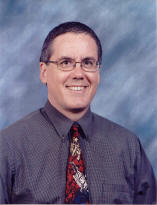APRIL 13 - Spirit Matters: The Basics
(NOTE: You can hear audio of this message by going to this link.)
Important things to remember about the Holy Spirit:
- The Holy Spirit is not just a force.
- The Holy Spirit and the Holy Ghost are not different.
- The work of the Holy Spirit did not begin on Pentecost.
- The Holy Spirit is not primarily about speaking in tongues.
- The work of the Holy Spirit is not separate from the work of Jesus.
- The Holy Spirit works in my life by helping me come to believe.
- The Holy Spirit works in my life by establishing Jesus as Lord of my life.
- The Holy Spirit works in my life by empowering and equipping my ministry.
So does this match up with what you believe about the Holy Spirit?
What questions does it raise for you?
Here are two key statements of historic United Methodist doctrine. (Remember, the names Holy Ghost and Holy Spirit are one and the same.)
There is but one living and true God, everlasting, without body or parts, of infinite power, wisdom, and goodness; the maker and preserver of all things, both visible and invisible. And in unity of this Godhead there are three persons, of one substance, power, and eternity—the Father, the Son, and the Holy Ghost. The Holy Ghost, proceeding from the Father and the Son, is of one substance, majesty, and glory with the Father and the Son, very and eternal God.
We believe in the one true, holy and living God, Eternal Spirit, who is Creator, Sovereign and Preserver of all things visible and invisible. He is infinite in power, wisdom, justice, goodness and love, and rules with gracious regard for the well-being and salvation of men, to the glory of his name. We believe the one God reveals himself as the Trinity: Father, Son and Holy Spirit, distinct but inseparable, eternally one in essence and power. We believe in the Holy Spirit who proceeds from and is one in being with the Father and the Son. He convinces the world of sin, of righteousness and of judgment. He leads men through faithful response to the gospel into the fellowship of the Church. He comforts, sustains and empowers the faithful and guides them into all truth.
(From The Book of Discipline of The United Methodist Church)

